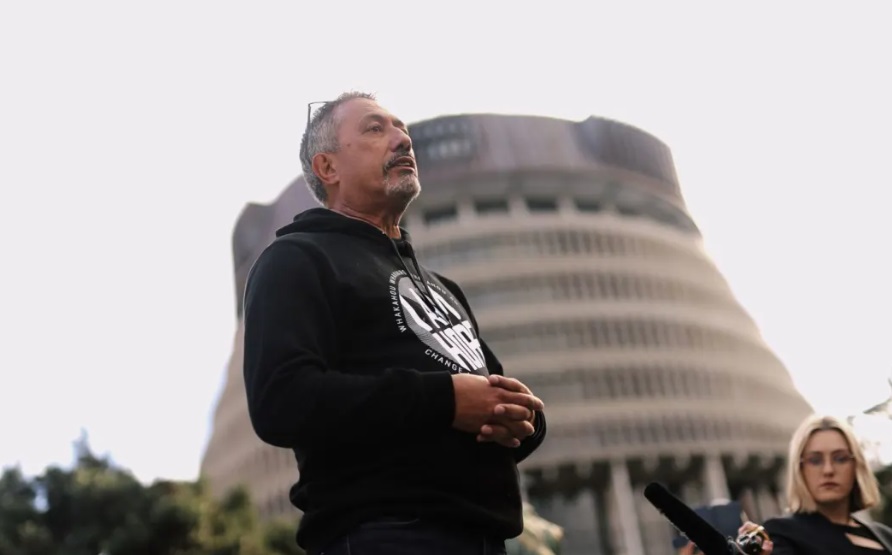
Mental health campaigner Mike King and I Am Hope chair Naomi Ballantyne joined Deputy Prime Minister Winston Peters and Mental Health Minister Matt Doocey to announce the move at Parliament on Wednesday morning.
Peters said the money would enable the charity to provide access to free mental health counselling services for more than 15,000 young New Zealanders per year, more than doubling its reach.
A commitment to $6m in extra funding for the charity was included in the NZ First-National coalition agreement.
National also promised during the election campaign last year to set up a Mental Health Innovation Fund which would help providers and other NGOs.
Doocey said prevention and early intervention were a critical part of dealing with mental health, and Gumboot Friday played a vital role in enabling young people with mild to moderate mental health needs access to counselling services earlier.
He said research had found every $1 invested with I Am Hope resulted in a social return to New Zealand worth $5.70.
He believed the "mental health debate is largely driven by young people in New Zealand", suggesting they were articulate about mental health in a way older generations had not been.
King said every cent would be reported and accounted for.
"Every single cent, $24 million, is going directly to counsellors. Mike King is not putting a single cent in his pocket, I Am Hope Foundation is not putting a single cent in its pocket, this is about the kids," he said.
"They say it only takes 16 years to be an overnight sensation ... I've been working with I Am Hope since 2009. In all that time we've not been funded one cent, everything we have built up we have built up with the backing of ordinary New Zealanders who have been funding this operation."
He thanked the coalition government for "believing in what we do", and pointed as well to Deputy General of Mental Health Robin Shearer and her team.
The funding would also allow I Am Hope to bring in another 300 counsellors, he said.
He said the charity was data-driven, and their figures showed the interaction between parents was one of the main concerns for young people.
Doocey also pointed to further work planned in mental health crisis response.
"When you call 111 with a physical health crisis, you get a health response. When you call 111 with a mental health crisis in New Zealand at the moment you get a criminal justice response.
"I want to thank the police for turning up, they do a good job but clearly ... we need a better mental health response and that will be a key piece of work going forward."











